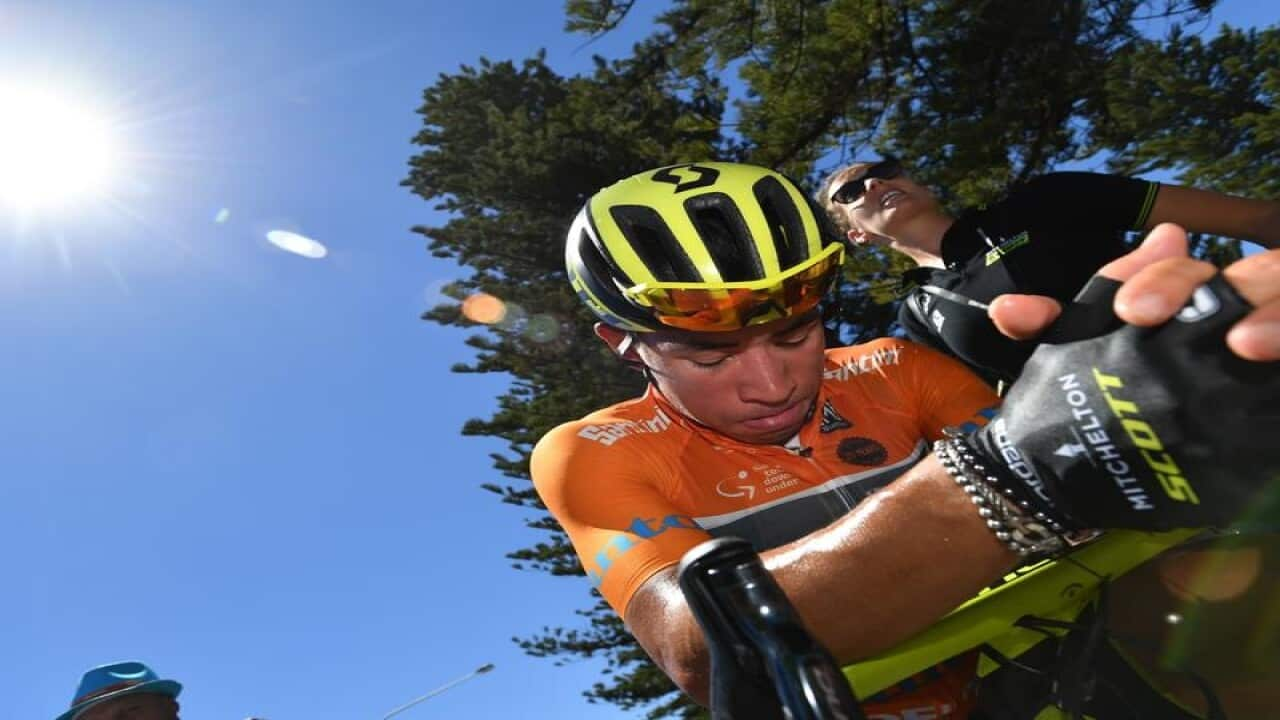Ewan replaces Andre Greipel as the marquee sprinter at the team, taking a two-man entourage to aid the transition following a five-year tenure at Mitchelton-Scott that ended bitterly.
“Caleb is one of the guys that will be named in the next years always when they talk about sprinting. We had before [Mark] Cavendish, Greipel, [Marcel] Kittel. They’re not gone but they won’t win as many as they did before. We’re going to make sure Caleb is among the names that will be named always,” said Aerts.
“He’ll be a perfect fit for the team, I think he also chose the team because of the family like qualities we have.”
The 24-year-old has amassed 29 professional wins thus far and made a reputation for himself but is yet to be truly measured at the Tour de France, which Mitchelton-Scott overlooked him for 2018 despite having previously confirmed a debut start.
Ewan will surely be spurned by that and the heritage of Lotto Soudal, though his biggest advantage in 2019 may prove to be rivals.
Mario Cipollini once attributed Cavendish’s heyday success to a “power vacuum”, essentially saying the Manxman was able to cash in against a field of faded stars.
That doesn’t apply to today’s peloton where no one sprinter or team has been able to outwardly dominate bunch gallops. However, the reshuffling of some of Ewan’s key competition may prove advantageous.
Fernando Gaviria has signed a three-year deal with UAE Team Emirates that, while home to Alexander Kristoff, doesn’t have the notoriety of Quick-Step Floors, which piloted the Colombian to a stand-out season, and Kittel and Cavendish before that.
The 14-time Tour de France stage winner Kittel was inconsistent in his first year at Katusha-Alpecin where tension with management was also reported, and how the German bounces back from that remains to be seen.
Greipel will be more focused on the Pro Continental circuit with Fortuneo-Samsic while Cavendish is teetering on swansong, older now and struggling with illness and injury at Dimension Data with whom he has marked just two stage victories in as many years.
“When we made the train for Andre it was different than nowadays. Now there is not one team that generate a lead-out like we did seven or eight years [ago]. That’s finished. But Caleb is also more a sprinter who doesn’t need a real train, he can also jump to the right wheel so that’s a bit different. We can also play on that,” said Aerts.
The arrival of Ewan, Roger Kluge (Mitchelton-Scott) and Adam Blythe (Aqua Blue Sport) will see a restructure but not wholesale changes to a Lotto Soudal sprint group that Aerts reels off like a list of riches.
“That’s the same as we did with Andre when we made up the train, it took quite a lot of effort on training camp to test this and that and then even in the races after. You get experience and improve with every sprint you do,” said Aerts.
“It’s not work that will be done in one weekend. I would like that, but they also have to build the confidence in each other. He brings Blythe and Kluge with him, so they know him already. Then you have Jasper De Buyst, who did the lead-outs for Andre, so he has the experience. Adam Hansen has a lot of experience already in bringing the train to the front, so he will be there, then we have quite a few guys we can fit in. I don’t think he has to fear the lead-out.”
Ewan turned professional with Mitchelton-Scott, which focused on a slow development over launching the sprinter. He will now surely be looking to do just that at his new stable, starting at the Tour Down Under in January where Aerts will direct him.
“It’s a process of learning and getting better every sprint. Hopefully it’s with victory, or victories,” Aerts said.




